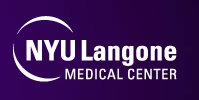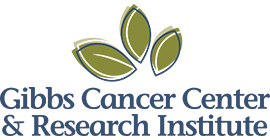Gemcitabine and Erlotinib Before and After Surgery in Treating Patients With Pancreatic Cancer That Can Be Removed by Surgery
| Status: | Active, not recruiting |
|---|---|
| Conditions: | Cancer, Cancer, Pancreatic Cancer |
| Therapuetic Areas: | Oncology |
| Healthy: | No |
| Age Range: | 18 - Any |
| Updated: | 2/8/2019 |
| Start Date: | April 2009 |
A Phase II Study of Preoperative Gemcitabine and Erlotinib Plus Pancreatectomy and Postoperative Gemcitabine and Erlotinib for Patients With Operable Pancreatic Adenocarcinoma
PURPOSE: This phase II trial is studying how well gemcitabine and erlotinib work when given
before and after surgery in treating patients with pancreatic cancer that can be removed by
surgery. Drugs used in chemotherapy, such as gemcitabine, work in different ways to stop the
growth of tumor cells, either by killing the cells or by stopping them from dividing.
Erlotinib may stop the growth of tumor cells by blocking some of the enzymes needed for cell
growth. Giving gemcitabine and erlotinib before surgery may make the tumor smaller and reduce
the amount of normal tissue that needs to be removed. Giving these drugs after surgery may
kill any tumor cells that remain after surgery.
before and after surgery in treating patients with pancreatic cancer that can be removed by
surgery. Drugs used in chemotherapy, such as gemcitabine, work in different ways to stop the
growth of tumor cells, either by killing the cells or by stopping them from dividing.
Erlotinib may stop the growth of tumor cells by blocking some of the enzymes needed for cell
growth. Giving gemcitabine and erlotinib before surgery may make the tumor smaller and reduce
the amount of normal tissue that needs to be removed. Giving these drugs after surgery may
kill any tumor cells that remain after surgery.
This is a single arm, non-randomized phase II study. Eligible, fully registered patients will
receive preoperative chemotherapy consisting of gemcitabine plus erlotinib. Preoperative
chemotherapy will be followed by exploratory laparotomy and pancreaticoduodenectomy. Patients
will then receive postoperative chemotherapy consisting of gemcitabine plus erlotinib. Up to
123 patients will be accrued to this study, with the expectation that 78 patients will remain
fully eligible and evaluable for the primary endpoint. The primary and secondary objectives
for the study are listed below.
Primary Objective:
To estimate the proportion of patients alive at two years from the date of registration
Secondary Objectives:
1. To determine the resection rate (defined as the fraction of patients who proceed to
planned surgery with removal of primary tumor [R0/R1]) following induction treatment
with gemcitabine plus erlotinib
2. To estimate the time to disease progression/relapse
3. To evaluate the rate of R0, R1, and R2 resections (defined as per the 6th edition of the
AJCC Cancer Staging Manual) in patients treated with preoperative gemcitabine plus
erlotinib chemotherapy
4. To evaluate the toxicity profile of preoperative gemcitabine plus erlotinib and the
feasibility of postoperative gemcitabine plus erlotinib
5. To evaluate response rates to preoperative chemotherapy for patients treated with
preoperative gemcitabine and erlotinib
6. To identify molecular predictors of pancreatic cancer response to gemcitabine combined
with erlotinib
7. To identify genetic profiles of pancreatic adenocarcinoma that may be associated with
response to neoadjuvant therapy
After completion of postoperative chemotherapy treatment, patients are followed every 3
months for 2 years and then every 6 months for 2 years.
receive preoperative chemotherapy consisting of gemcitabine plus erlotinib. Preoperative
chemotherapy will be followed by exploratory laparotomy and pancreaticoduodenectomy. Patients
will then receive postoperative chemotherapy consisting of gemcitabine plus erlotinib. Up to
123 patients will be accrued to this study, with the expectation that 78 patients will remain
fully eligible and evaluable for the primary endpoint. The primary and secondary objectives
for the study are listed below.
Primary Objective:
To estimate the proportion of patients alive at two years from the date of registration
Secondary Objectives:
1. To determine the resection rate (defined as the fraction of patients who proceed to
planned surgery with removal of primary tumor [R0/R1]) following induction treatment
with gemcitabine plus erlotinib
2. To estimate the time to disease progression/relapse
3. To evaluate the rate of R0, R1, and R2 resections (defined as per the 6th edition of the
AJCC Cancer Staging Manual) in patients treated with preoperative gemcitabine plus
erlotinib chemotherapy
4. To evaluate the toxicity profile of preoperative gemcitabine plus erlotinib and the
feasibility of postoperative gemcitabine plus erlotinib
5. To evaluate response rates to preoperative chemotherapy for patients treated with
preoperative gemcitabine and erlotinib
6. To identify molecular predictors of pancreatic cancer response to gemcitabine combined
with erlotinib
7. To identify genetic profiles of pancreatic adenocarcinoma that may be associated with
response to neoadjuvant therapy
After completion of postoperative chemotherapy treatment, patients are followed every 3
months for 2 years and then every 6 months for 2 years.
Eligibility Criteria:
1. Cytologic or histologic proof of adenocarcinoma of the pancreatic head or uncinate
process.
NOTE: Patients with tumors of the pancreatic neck, body or tail are not eligible.
Patients with evidence of neuroendocrine tumors, duodenal adenocarcinoma, or ampullary
adenocarcinoma are not eligible.
2. Localized, potentially resectable tumors as defined below. All patients must be staged
with a chest X-ray or CT, and abdominal CT (contrast-enhanced, helical thin-cut) or
MRI. Radiological resectability is defined by the following criteria on abdominal
imaging:
- No evidence of tumor extension to the celiac axis, hepatic artery, or superior
mesenteric artery
- No evidence of tumor encasement or occlusion of the superior mesenteric vein
(SMV) or the SMV/portal vein confluence
- No evidence of visceral or peritoneal metastases
NOTE: Patients with borderline resectable or marginally resectable pancreatic cancer
are not eligible. Patients must meet all objective imaging criteria outlined above.
3. ≥ 18 years of age
4. ECOG/Zubrod performance status of 0 or 1
5. Baseline weight loss ≤ 15% of premorbid weight
6. Patient must have adequate hematologic, renal, and hepatic function as defined by:
- WBC ≥ 2,000 cells/mm³
- ANC ≥ 1,500 cells/mm³
- Platelets ≥ 100,000 cells/mm³
- Serum bilirubin ≤ 2.5 mg/dL
- Serum creatinine ≤ 1.5 mg/dL or a calculated creatinine clearance of ≥ 50 ml/min
(24 hour urine collection)
- ALT < 2.5 times upper limit of normal (ULN)
- AST < 2.5 times ULN
- Albumin ≥ 3.2 g/dl
7. No history of the following:
- Prior EGFR targeted therapy or therapy for pancreatic cancer
- Active infection requiring intravenous antibiotics at the time of registration
8. Non-pregnant and non-breast feeding. Female participants of child bearing potential
must have a negative urine or serum pregnancy test prior to registration.
Perimenopausal participants must be amenorrheic ≥ 12 months to be considered not of
childbearing potential. All patients of reproductive potential must agree to use an
effective method of birth control while receiving study therapy.
9. No prior malignancy within 5 years of registration (Exceptions: non-melanoma skin
cancer, in-situ cancers)
We found this trial at
24
sites
Click here to add this to my saved trials
2401 West Belvedere Avenue
Baltimore, Maryland 21215
Baltimore, Maryland 21215
(410) 601-4688
Alvin and Lois Lapidus Cancer Institute at Sinai Hospital The Alvin & Lois Lapidus Cancer...
Click here to add this to my saved trials
University of Mississippi Cancer Clinic he Cancer Institute is home to the ACT Tobacco Treatment,...
Click here to add this to my saved trials
St. Agnes Hospital Cancer Center Saint Agnes Hospital is leading Maryland in the battle against...
Click here to add this to my saved trials
Click here to add this to my saved trials
101 Manning Drive
Chapel Hill, North Carolina 27514
Chapel Hill, North Carolina 27514
(919) 966-0000

Lineberger Comprehensive Cancer Center at University of North Carolina - Chapel Hill One of the...
Click here to add this to my saved trials
Click here to add this to my saved trials
Samaritan North Cancer Care Center At Good Samaritan Hospital (GSH), our licensed, board-certified staff uses...
Click here to add this to my saved trials
Click here to add this to my saved trials
Click here to add this to my saved trials
Click here to add this to my saved trials
Click here to add this to my saved trials
Click here to add this to my saved trials
Click here to add this to my saved trials
Morgantown, West Virginia 26506
Click here to add this to my saved trials
160 E 34th St
New York, New York 10016
New York, New York 10016
(212) 731-5001

NYU Cancer Institute at New York University Medical Center The Perlmutter Cancer Center takes a...
Click here to add this to my saved trials
Click here to add this to my saved trials
Methodist Estabrook Cancer Center At Methodist Estabrook Cancer Center, we understand how deeply a diagnosis...
Click here to add this to my saved trials
Orange, California 92868
Click here to add this to my saved trials
4805 NE Glisan St
Portland, Oregon 97213
Portland, Oregon 97213
(503) 215-1111

Providence Cancer Center at Providence Portland Medical Center We strive to give those we serve...
Click here to add this to my saved trials
101 E Wood St
Spartanburg, South Carolina 29303
Spartanburg, South Carolina 29303
(864) 560-6000

Gibbs Regional Cancer Center at Spartanburg Regional Medical Center Gibbs Cancer Center is a nationally...
Click here to add this to my saved trials
3130 N. County Rd. 25-A
Troy, Ohio 45373
Troy, Ohio 45373
(937) 440-4000

UVMC Cancer Care Center at Upper Valley Medical Center Upper Valley Medical Center (UVMC) is...
Click here to add this to my saved trials
Click here to add this to my saved trials



